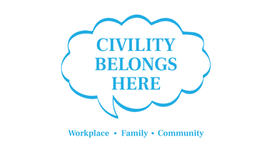- Bill Durkin
- Oct 25, 2019
- 4 min read

If you've read and done your best to apply the listening ideas from the last two weeks, I sincerely hope you've seen some improvement in your ability to listen to people when they need to be heard. I also hope your relationships have gotten a little better as a result of listening a little longer.
You may have also noticed that much of the unhealthy conflict in our lives is the result of people not really listening to each other.
I taught a two-day leadership workshop in Las Vegas and I gave the class an evening assignment. I asked them to call someone they've known for a long time and just listen to learn something new. The next day I asked for some volunteers to share their experience. One woman told me she had a 40-minute, meaningful conversation with her 16-year-old son. She said... "You may not think that's a big deal, but since he became a teenager, we haven't been able to talk for more than a few minutes without getting into an argument."
Another man said he called his wife and after about 5 minutes she said... "You're acting strange. What's going on out there?" The man replied..."Nothing, I just want to listen to you." She said... "We've been married for 25 years and you haven't listened to me once. Why do you want to listen to me now that you're in Vegas?" After he explained it was homework from the leadership workshop, they went on to have a great conversation. However, he said the activity was a real wake-up call for him. He knew he wasn't listening all those years, but he thought he was doing a good job of faking it. His wife just felt like he didn't care.
"The obligation to listen can be experienced as a burden, and we all sometimes feel that way. But it is quite a different thing to be moved by a strong sense that the people in our lives are eminently worth listening to, a sense of their dignity and value. One thing we can all add a little more of is understanding, respect, compassion, and fairness, the fundamental values conveyed by listening."
Michael P. Nichols, Author, The Lost Art of Listening
Offering someone your undivided attention, letting the other person drive the conversation in the direction they need to go, and gaining a greater appreciation for the other person's facts and feelings is extremely difficult. However, it's worth the effort. Giving another person the experience of being heard is one of the most valuable gifts you'll ever give the people you work with, live with and serve.
To become a better listener requires a commitment to making listening a life-long practice. This list of positive habits is intended to help you achieve that objective. These ideas are not meant to be techniques that help you act like you're listening, but rather daily practices that can become part of all your conversations.
Please take a moment to review each habit and pick one you want to work on this week.
Be sincerely interested in other people and their ideas. (Remember, you can't fake sincerity.)
Keep increasing the amount of time you're able to pay attention. (If your mind wanders, bring it right back to the speaker's area of interest.)
Treat all conversations and people as though they were important.
Respect other people's opinions and beliefs.
Allow people time to complete their thoughts. (When the other person stops speaking, stay silent. They may have more to say.)
Have a creative mind, not an open mind, when listening to someone with a different opinion. (Leaders with an open mind listen until they hear something they disagree with and then they focus on the disagreement. Leaders with a creative mind take personal responsibility for creating value from what the other person says.)
Listen to learn something new or to really understand someone with a different point of view.
Encourage others to say more about their opinion when you agree or disagree with their idea.
Have patience with people who are having a hard time expressing their opinion.
Give appropriate non-verbal signals and ask questions that show you're genuinely interested in the conversation. (Good listening requires more than just remaining silent.)
Avoid emotionally packed words which cause people to "turn off."
Keep the conversation focused on their area of interest. (Everything someone says will remind you of a something in your life. Resist the urge to tell your story.)
Summarize your understanding of what the other person is saying.
Teach other people to listen by asking them to summarize their understanding of what you said to them. (When most leaders give information, they end their conversation with a closed-ended question like..."Do you understand?" or "Do you agree?" The other person says 'yes' and the leader leaves with the illusion that their communication has been successful, and yet the other person was not really listening.)
Give yourself permission to say, "NO, I can't listen right now. Let's set up another time to talk." (It's much more respectful to reschedule a conversation if you know you're going to be distracted or don't have the time or energy to listen.)
Most human beings have a strong desire to have positive relationships with their co-workers, clients, family members and friends. However, each year we seem to be spending more and more time "alone together." Take a look around your conference rooms and living room. Do you see people sitting next to each other wearing ear pods and looking at their cell phones?
Today, loneliness is considered an epidemic around the world; and while becoming a better listener may not be able to solve that problem, making the time and having the ability to listen will make a major contribution to helping your team thrive and family flourish.



































Comments